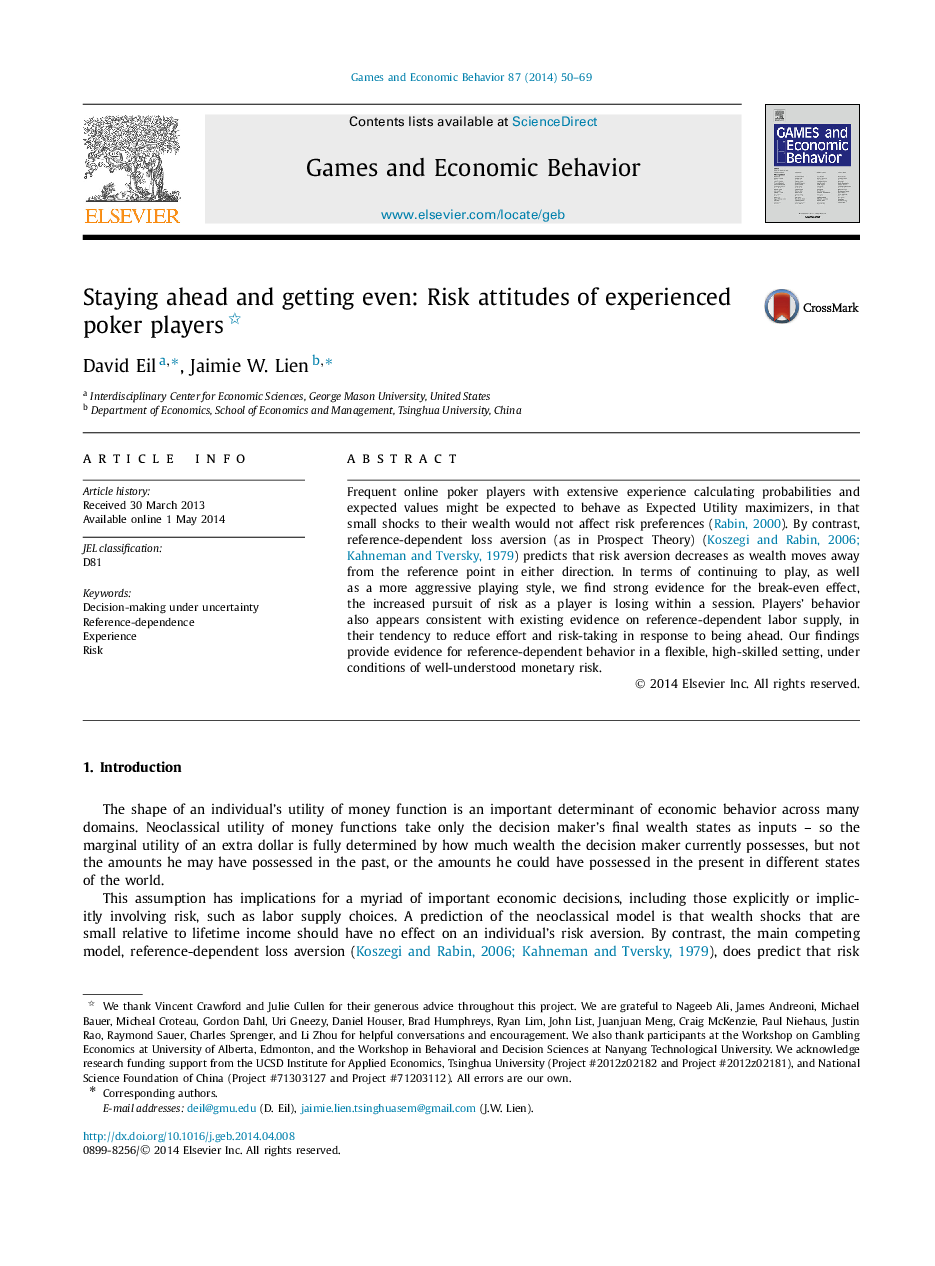| Article ID | Journal | Published Year | Pages | File Type |
|---|---|---|---|---|
| 5071846 | Games and Economic Behavior | 2014 | 20 Pages |
â¢We analyze individual-level data on behavior of experienced online poker players.â¢The break-even effect is evident in players' quitting decisions and playing style.â¢Players tend to reduce effort and risk-taking in response to being ahead.â¢The findings are consistent with evidence on reference-dependent labor supply.
Frequent online poker players with extensive experience calculating probabilities and expected values might be expected to behave as Expected Utility maximizers, in that small shocks to their wealth would not affect risk preferences (Rabin, 2000). By contrast, reference-dependent loss aversion (as in Prospect Theory) (Koszegi and Rabin, 2006; Kahneman and Tversky, 1979) predicts that risk aversion decreases as wealth moves away from the reference point in either direction. In terms of continuing to play, as well as a more aggressive playing style, we find strong evidence for the break-even effect, the increased pursuit of risk as a player is losing within a session. Players' behavior also appears consistent with existing evidence on reference-dependent labor supply, in their tendency to reduce effort and risk-taking in response to being ahead. Our findings provide evidence for reference-dependent behavior in a flexible, high-skilled setting, under conditions of well-understood monetary risk.
